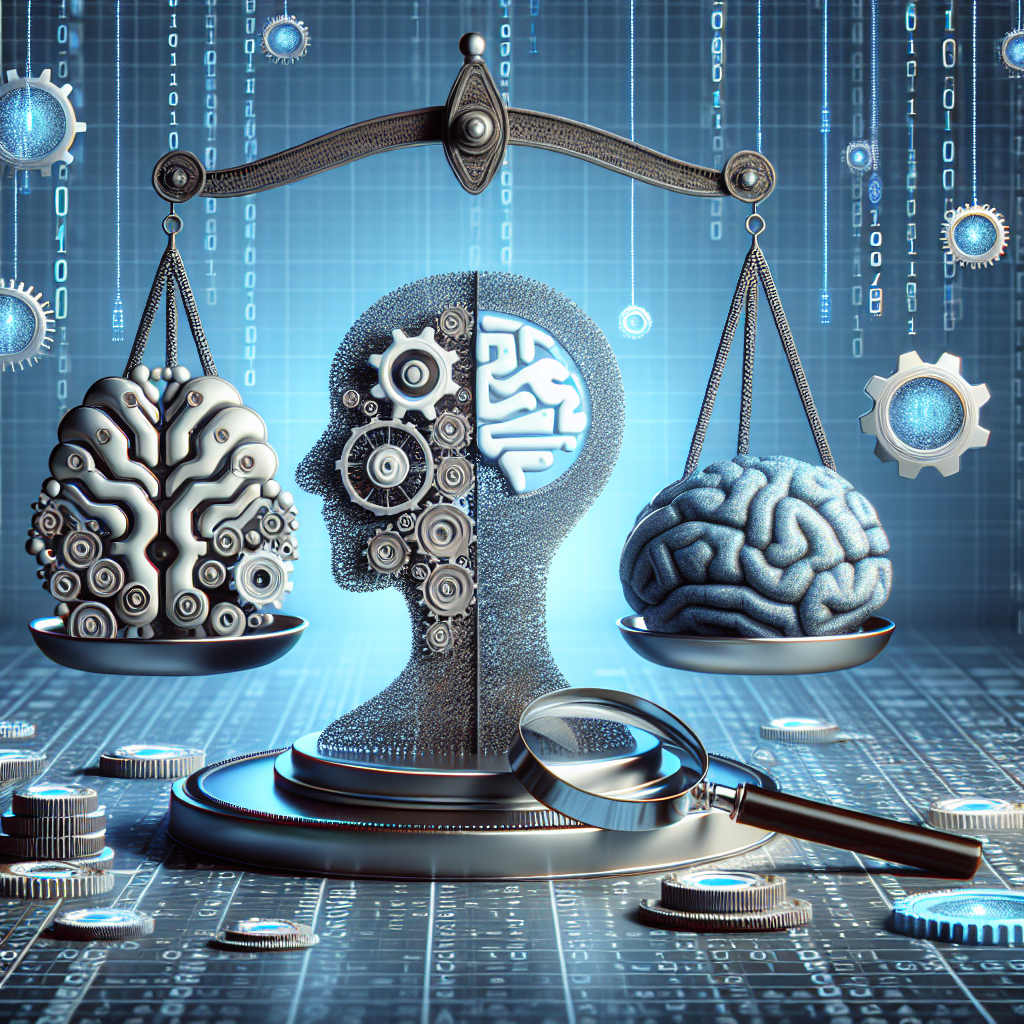In recent years, artificial intelligence (AI) has become increasingly integrated into various aspects of our lives, from the algorithms that power our social media feeds to the autonomous vehicles that navigate our streets. While AI has the potential to revolutionize industries and improve efficiency, its rapid advancement has also raised concerns about ethics and accountability. As AI tools become more prevalent in society, it is crucial to ensure that they are developed and used in a way that is fair, transparent, and accountable.
The Ethics of AI Tools
One of the key ethical concerns surrounding AI tools is the issue of fairness. AI algorithms are only as good as the data they are trained on, and if that data is biased or incomplete, the algorithms themselves can perpetuate and even exacerbate existing inequalities. For example, a facial recognition system that is trained primarily on data from white individuals may struggle to accurately identify people of color, leading to discriminatory outcomes.
To address this issue, developers of AI tools must be vigilant in ensuring that their datasets are diverse and representative of the populations they will be used on. They must also regularly audit their algorithms for bias and take steps to mitigate any disparities that are identified. Additionally, it is important to involve stakeholders from a variety of backgrounds in the development and testing of AI tools to ensure that they are sensitive to the needs and experiences of all users.
Another ethical concern related to AI tools is accountability. AI systems are often complex and opaque, making it difficult to trace the decision-making process and understand how a particular outcome was reached. This lack of transparency can make it challenging to hold developers and users accountable for the actions of AI tools, particularly in cases where those actions have harmful or discriminatory consequences.
To address this issue, developers must prioritize transparency in the design and implementation of AI tools. This includes providing clear explanations of how algorithms work, as well as documenting the data sources and decision-making processes that inform their outputs. Developers should also establish mechanisms for users to appeal decisions made by AI tools and provide avenues for redress in cases of harm or discrimination.
Ensuring Fairness and Accountability
There are several strategies that developers and users of AI tools can employ to ensure fairness and accountability in their use. One key approach is to prioritize diversity and inclusion in the development process, both in terms of the datasets used to train algorithms and the teams responsible for their creation. By incorporating a wide range of perspectives and experiences, developers can help to identify and mitigate bias in AI tools before they are deployed.
Another important step is to establish clear guidelines and standards for the use of AI tools, particularly in high-stakes applications such as healthcare, criminal justice, and finance. These guidelines should outline the ethical principles that underpin the use of AI tools, as well as the mechanisms for oversight and accountability that will be in place to ensure that those principles are upheld. Regular audits and reviews of AI systems can help to identify and address any issues that arise, while also providing a measure of transparency and accountability to stakeholders.
In addition to these proactive measures, it is also important to have mechanisms in place for addressing issues of fairness and accountability when they arise. This may include establishing channels for reporting bias or discrimination, as well as avenues for seeking redress for harm caused by AI tools. By creating a culture of accountability and transparency around the use of AI, developers and users can help to mitigate the risks associated with these powerful technologies.
FAQs
Q: How can developers ensure that their AI tools are fair and unbiased?
A: Developers can ensure that their AI tools are fair and unbiased by prioritizing diversity and inclusion in the development process, regularly auditing algorithms for bias, and involving stakeholders from a variety of backgrounds in testing and validation.
Q: What are some examples of bias in AI tools?
A: Examples of bias in AI tools include facial recognition systems that struggle to accurately identify people of color, predictive policing algorithms that disproportionately target minority communities, and hiring algorithms that favor candidates from privileged backgrounds.
Q: How can users hold developers and users of AI tools accountable for their actions?
A: Users can hold developers and users of AI tools accountable by demanding transparency in the design and implementation of algorithms, establishing clear guidelines for the use of AI tools in high-stakes applications, and providing mechanisms for reporting bias or discrimination.
Q: What are some best practices for ensuring fairness and accountability in the use of AI tools?
A: Best practices for ensuring fairness and accountability in the use of AI tools include prioritizing diversity and inclusion in the development process, establishing clear guidelines and standards for the use of AI tools, and creating mechanisms for addressing issues of bias and discrimination when they arise.
In conclusion, the ethics of AI tools are a complex and evolving field, but by prioritizing fairness and accountability in their development and use, developers and users can help to mitigate the risks associated with these powerful technologies. By incorporating diverse perspectives, establishing clear guidelines and standards, and providing mechanisms for oversight and redress, we can ensure that AI tools are used in a way that is ethical, transparent, and ultimately beneficial to society as a whole.

